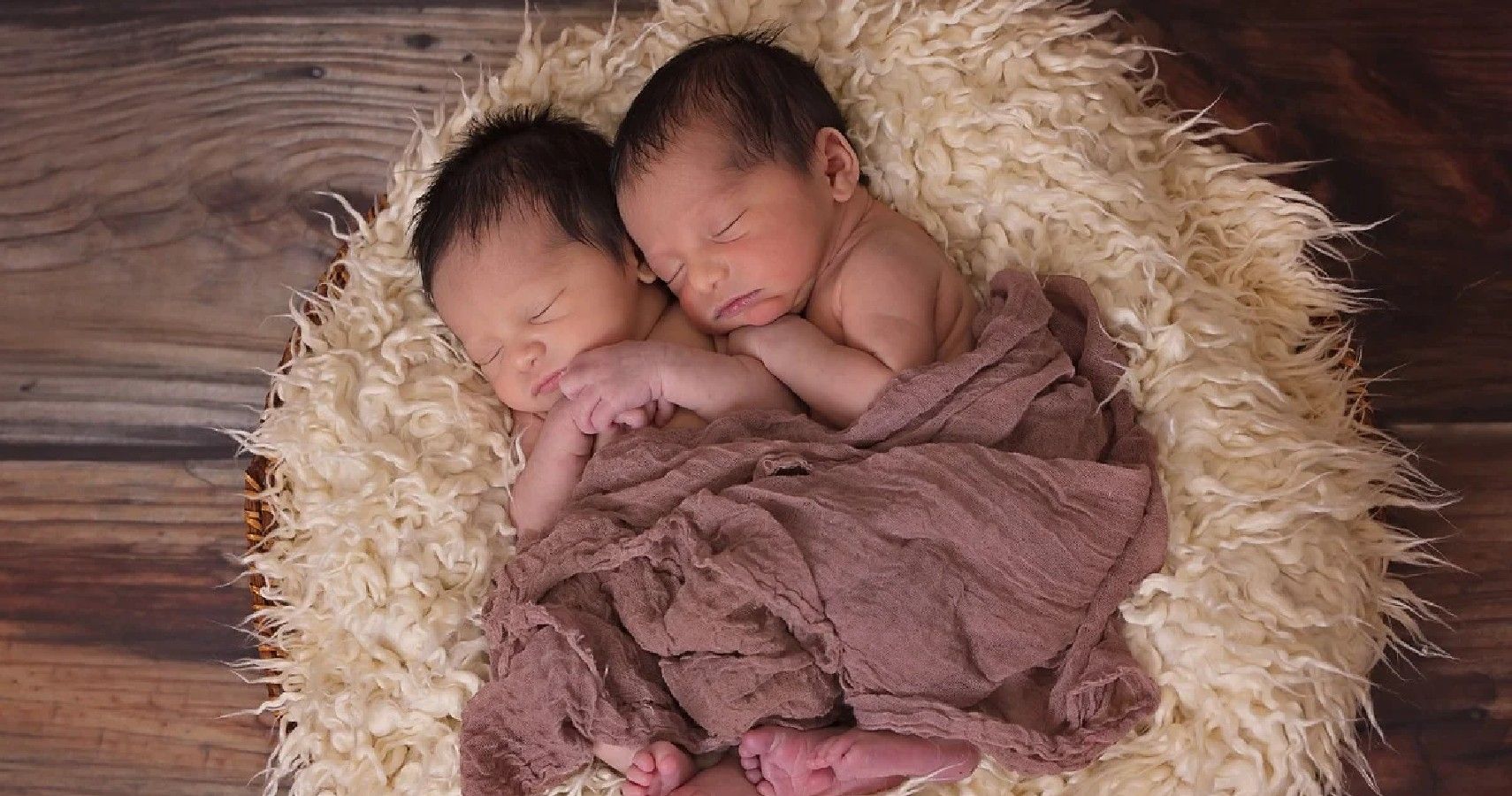Even though they’re the biological parents of their twins, Tammy and Jordan Myers are being forced to adopt their babies because they were born to a surrogate. The New York Times explains that Michigan law currently does not recognize the biological parents as the legal parents of children born to surrogates. Rather, the surrogate is automatically deemed the legal parent, whether they used their eggs to conceive the child or not. For Tammy and Jordan Myers’ twins, a daughter named Ellison and a son named Eames, the surrogate, Lauren Vermilye, and her husband were listed as the legal parents at birth.
The Myers, who are also parents to 8-year-old daughter Corryn, have tried twice to adopt their biological twins but have been denied both times. This decision comes even after both a fertility doctor as well as the surrogate and her husband declared in separate affidavits that the twins are the biological children of the Myers and support their bid to adopt the babies. The Myers originally connected with their gestational surrogate after an emotional plea on Facebook. They paid for IVF in order to transfer Tammy’s egg and Jordan’s sperm to the surrogate’s uterus. The surrogate, who has two children of her own, grew close to the Myers and has been supportive of them raising their twins since the beginning.
The couple’s troubles started when they tried to bring their twins home from the hospital. The babies were born eight weeks premature on January 11th but were cleared to go home shortly after. However, the Myers learned they needed to send reference letters directed to the state while also getting “temporary permission” from the surrogate to bring the twins home.
Jordan Myers, 38, told New York Times that its “offensive” he and his wife have to go through the adoption process to raise their own biological children, especially after going through a challenging fertility journey. The Myers will be subjected to visits from social workers, a variety of personal questions, and a background check in order to move ahead with the adoption.
As it stands, every state in the United States has different laws concerning surrogacy. While some states have detailed laws about the rights of surrogates as well as the intended parents, others have no laws governing surrogacy at all. Some states, including New York, have passed legislation preventing surrogates from being financially compensated for their services. Louisiana also prevents financial compensation, but still recognizes agreements made between surrogates and the intended parents, though they must be heterosexual and married.
The New York Times explains that Michigan, however, is very unique in that it has a specific law that denies the recognition of agreements that include a woman who agrees to carry a child for others. This, of course, means the state simultaneously does not recognize the rights of the intended parents.
This controversial law came after the infamous ‘Baby M’ case in 1985, in which a New Jersey woman agreed to use her own egg to carry a baby for a couple in exchange or $10,000. She later decided to keep the child, launching a high-profile series of court cases. Eventually, the biological father was granted custody. The law was designed to ensure a case of this nature never happens again, though it has clearly caused various problems for couples looking to welcome a child via a surrogate.
Sources: The New York Times, Fox 2 Detroit,

